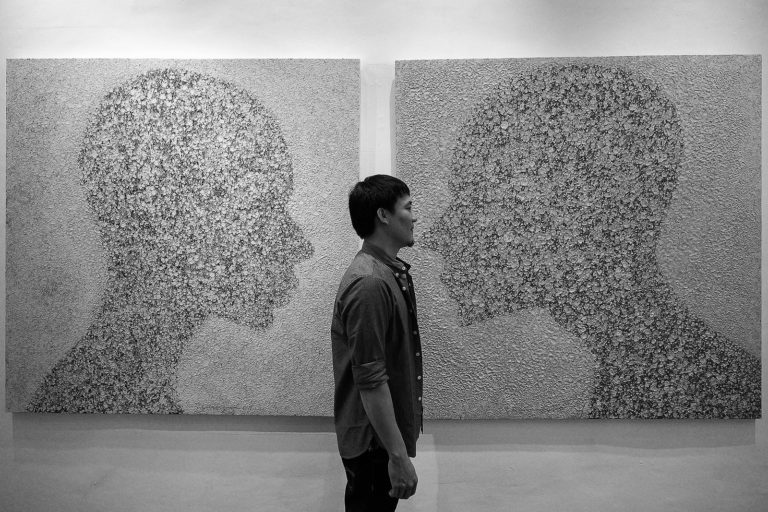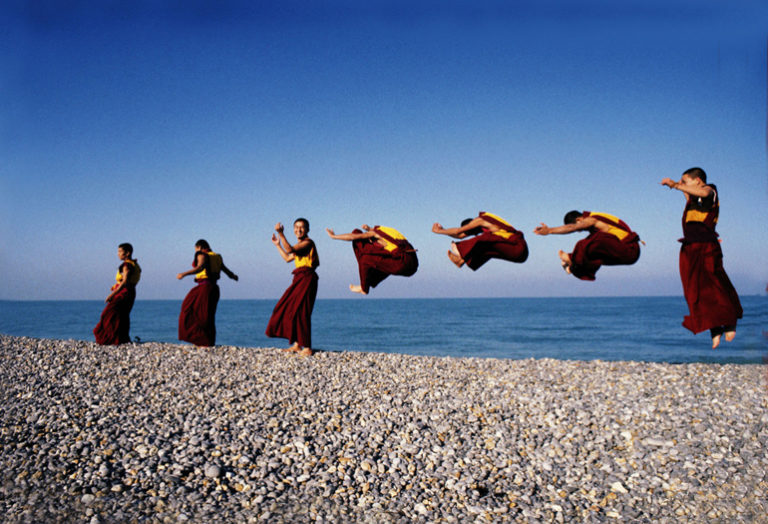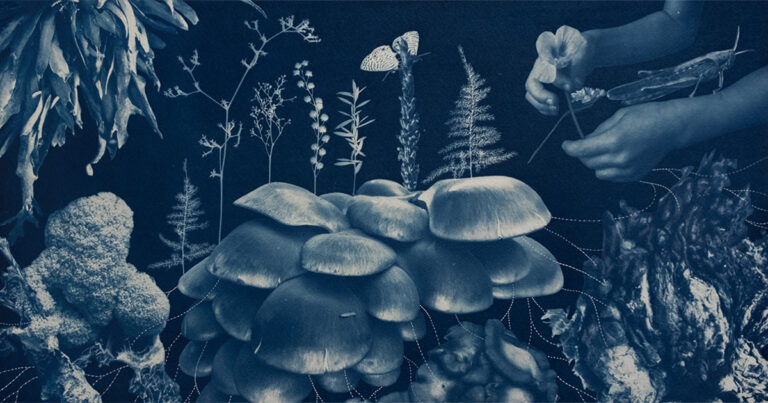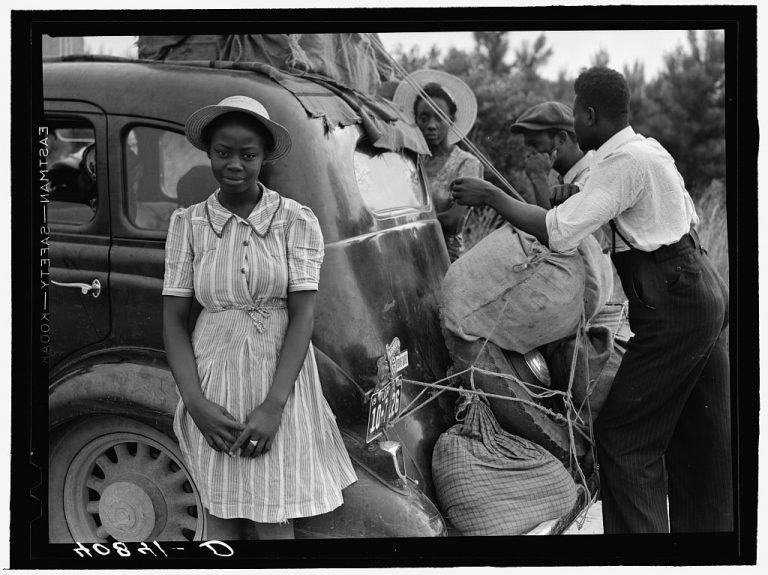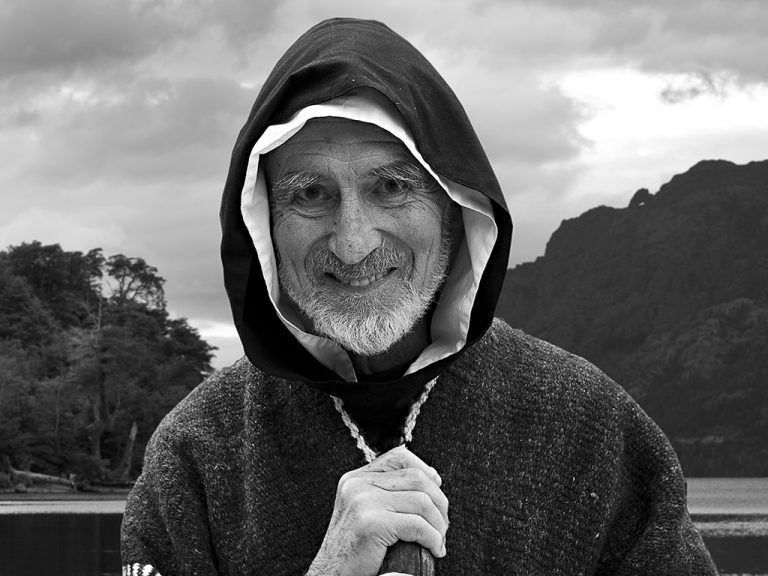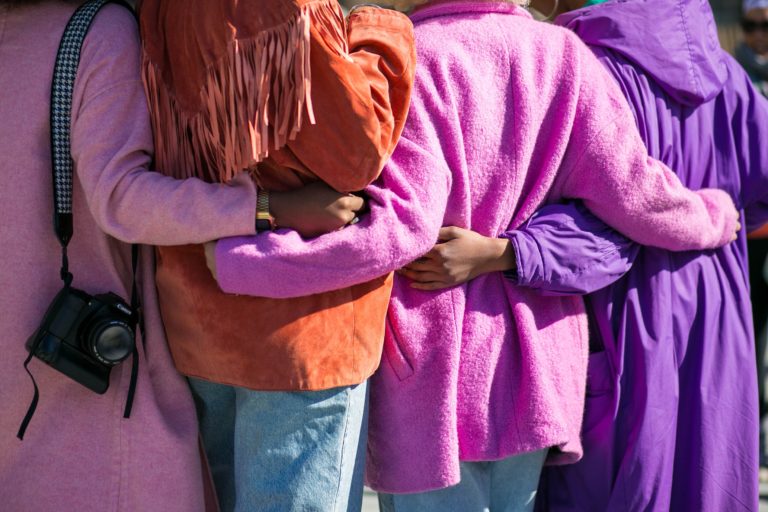In recent years, the practices of prayer have been evolving for many religious traditions. Even western medicine is looking at prayer as it expands its concept of healing. In this program, we consult several people from a variety of practices about the role of prayer in their lives.
Search results for “richard rohr”
View
- List View
- Standard View
- Grid View
Filters
“The soul is contained in the human voice,” says David Isay, founder of StoryCorps. He sees the StoryCorps booth — a setting where two people ask the questions they’ve always wanted to ask each other — as a sacred space. He shares his wisdom about listening as an act of love, and how eliciting and capturing our stories is a way of insisting that every life matters.
December 31, 2009
Anoushka Shankar, Stephen Mitchell, and Roberta Bondi
Approaching Prayer
Americans are religious and non-religious, devout and irreverent. But in astonishing numbers, across that spectrum, most of us say that we pray. We explore the subject of prayer, how it sounds, and what it means in three different traditions and lives.
Movies can be whimsical, terrifying, life-altering, culture-changing experiences where the big ideas we take up at On Being show up in the heart of our lives. This hour we experience this through seven lives and seven movies — from The Wizard of Oz and Black Panther to The Exorcist. Get out the popcorn for this upcoming flavor of the new season of our On Being Studios podcast This Movie Changed Me — a love letter to movies and their power to teach, connect, and transform us.
“When it comes to moral judgments, we think we are scientists discovering the truth, but actually we are lawyers arguing for positions we arrived at by other means.” The surprising psychology behind morality is at the heart of social psychologist Jonathan Haidt’s research. He explains “liberal” and “conservative” not narrowly or necessarily as political affiliations, but as personality types — ways of moving through the world. His self-described “conservative-hating, religion-hating, secular liberal instincts” have been challenged by his own studies.
A French-born Tibetan Buddhist monk and a central figure in the Dalai Lama’s dialogue with scientists, Matthieu Ricard was dubbed “The Happiest Man in the World” after his brain was imaged. But he resists this label. In his writing and in his life, he explores happiness not as pleasurable feeling but as a way of being that gives you the resources to deal with the ups and downs of life and that encompasses many emotional states, including sadness. We take in Matthieu Ricard’s practical teachings for cultivating inner strength, joy, and direction.
We deconstruct the phrase “moral values,” which has confused and divided Americans since November’s election. As the second term of George W. Bush commences, political analyst Steven Waldman helps explore what these words do and do not convey to liberals and conservatives, and why they still matter. What is at stake when both sides fail to understand the moral convictions of the other?
Suzanne Simard is the forest ecologist who has proven, beyond doubt, that trees communicate with each other — that a forest is a single organism wired for wisdom and care. Simard found that the processes that make for a high-functioning forest mirror the maps of the human brain that we’re also just now drawing. All of this turns out to be catching up with intelligence long held in aboriginal science. She calls the mature hub trees in a forest “Mother Trees” — parenting, eldering, in a mode of mutuality and reciprocity, modeling what we also know to be true of genuinely flourishing human ecosystems.
Go to the doctor and they won’t begin to treat you without taking your history — and not just yours, but that of your parents and grandparents before you. Pulitzer Prize-winning journalist Isabel Wilkerson points this out as she reflects on her epic work of narrative nonfiction, The Warmth of Other Suns. She’s immersed herself in the stories of the Great Migration, the movement of six million African Americans to northern U.S. cities in the 20th century. The book is a carrier of histories and truths that help make sense of human and social challenges at the heart of our life together now.
We’re in a season of renewal in the natural world and in spiritual traditions; both Easter and Passover this year are utterly transformed. It’s drawing us back to the wisdom of Br. David Steindl-Rast, who makes useful distinctions around experiences that are life-giving and resilience-making yet can feel absurd to speak of in a moment like this. A Benedictine monk for over 60 years, Steindl-Rast was formed by 20th-century catastrophes. He calls joy “the happiness that doesn’t depend on what happens.” And his gratefulness is not an easy gratitude or thanksgiving — but a full-blooded, reality-based practice and choice.
Joe Henry faced his mortality in 2018 when he was diagnosed with stage 4 prostate cancer and told he might only have months to live. Now in remission, the singer-songwriter and producer has created a gorgeous new album, The Gospel According to Water. Henry’s wisdom on living — and the loss that strangely defines it — ran all the way through this conversation, recorded before his cancer, in 2015. Beloved by fellow musicians as much as by his fans, he’s produced over a dozen albums of his own and written and produced for other artists, from Elvis Costello to Madonna.
November 21, 2019
Marilynne Robinson and Marcelo Gleiser
The Mystery We Are
Novelist Marilynne Robinson and physicist Marcelo Gleiser are both passionate about the majesty of science, and they share a caution about what they call our modern “piety” toward science. They connect thrilling dots among the current discoveries about the cosmos and the new territory of understanding our own minds. We brought them together for a joyous, heady discussion of the mystery we are.
“Race is a little bit like gravity,” john powell says: experienced by all, understood by few. He is a refreshing, redemptive thinker who counsels all kinds of people and projects on the front lines of our present racial longings. Race is relational, he reminds us. It’s as much about whiteness as about color. He takes new learnings from the science of the brain as forms of everyday power. “We don’t have to imagine doing things one at a time,” he says. “It’s not, ‘how do we get there?’ It’s, ‘how do we live?’”
February 2, 2017
Chuck Colson, Greg Boyd, and Shane Claiborne
How to Be a Christian Citizen: Three Evangelicals Debate
To be Evangelical is not one thing, even on abortion. This conversation about Christianity and politics with three generations of Evangelical leaders — Shane Claiborne, Greg Boyd, and the late Chuck Colson — feels more relevant in the wake of the 2016 election than it did when we first recorded it. We offer this searching dialogue, which is alive anew, to a changed political landscape.
It was supposed to be a discussion about “culture and conscience” with two social scientists, as part of a public gathering of the Center for Humans and Nature at the American Museum of Natural History. But Jonathan Haidt is studying the relationship between capitalism and moral evolution, and our conversation took off from there in surprising directions. The liberal view of capitalism as essentially exploitative may remain alive and well, Haidt says. But the ironic truth of history is that capitalism actually generates liberal values as it takes root in societies. Our conversation preceded this American cultural-political season but offers provocative perspective on it.
October 9, 2008
Rod Dreher
The Faith Life of the Party: Part II, The Right
The second part of our examination of religious energies below the surface of the 2008 presidential campaign. Conservative columnist Rod Dreher is an outspoken critic of mainstream Republican economic and environmental ideas and the conduct of the Iraq war, but he voted for George W. Bush twice. We explore the little-known story of religiously influenced impulses within the conservative movement that diverge from the Religious Right.
October 2, 2008
Amy Sullivan
The Faith Life of the Party: Part I, The Left
The Religious Right has gotten a fair amount of coverage in recent years, while the political Left has rarely been represented with a religious sensibility. Our guest, a national correspondent for Time magazine is a political liberal and an Evangelical Christian who has been observing the Democratic Party’s complex relationship with faith and the little-told story of its response to the rise of the Religious Right.
In a recent Pew poll, 16 percent of Americans identified themselves as “unaffiliated” — atheist, agnostic, or most prominently “nothing in particular.” Greg Epstein, a Humanist chaplain at Harvard, described himself that way until he discovered the tradition of humanism. He is passionate about articulating an atheist identity that is not driven by a stance against religion but by positive ethical beliefs and actions.
